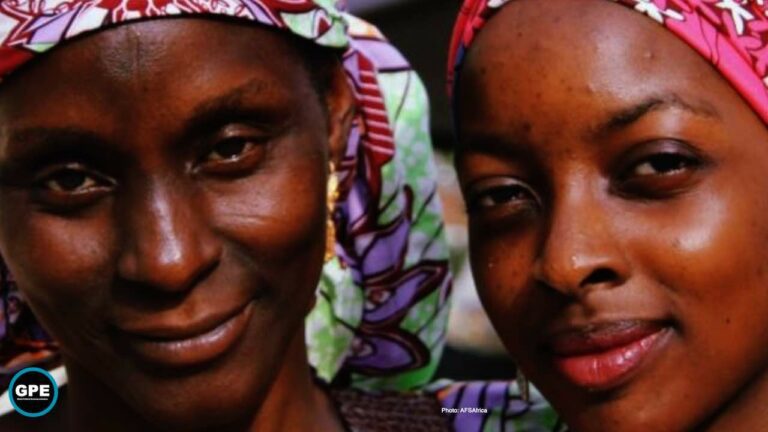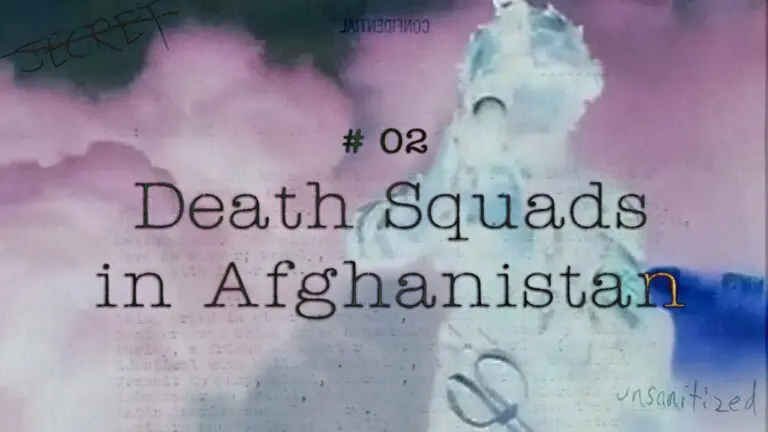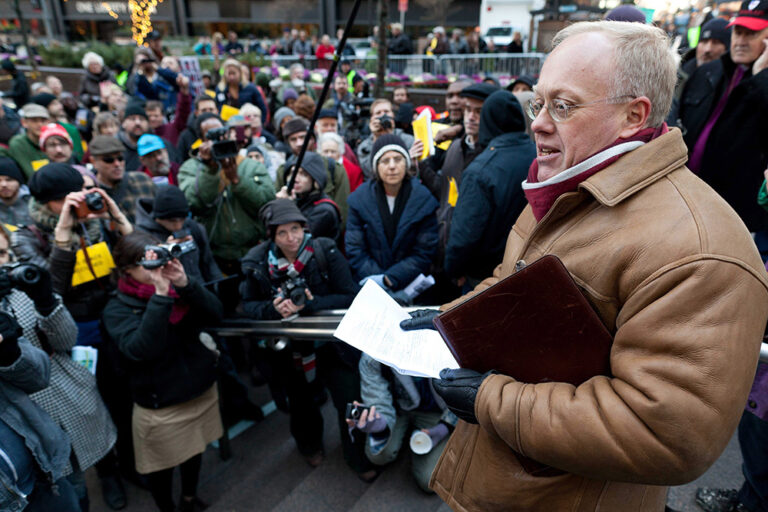Short documentary on Uganda’s US-backed dictatorship, the country’s freedom struggle from colonialism until today, and the geo-strategic role the regime plays for US Imperialism.
Abby Martin:
Remember that ultra viral video called Kony 2012 about the Ugandan warlord who recruited child soldiers, told through the eyes of some dudes from San Diego?
And after raking in tens of millions of dollars, the founder of the group behind the video, Invisible Children, drunkenly admitted to stealing money from donors?
Then the narrator of the video was caught naked on the street corner in a very public meltdown? But even crazier than all of this, is that the Obama Administration used Kony 2012’s viral video as marketing to ramp up its military actions in Uganda.
Well the big kicker to the story is that the Obama team rallied all this anger and outrage at the Lord’s Resistance Army for their atrocities in support of the US-backed Ugandan army that was carrying out the same kind of war crimes, including mass rape and massacres of civilians, under the command of one of the world’s longest-serving dictators: American puppet General Museveni.
This story is emblematic of US policy in Uganda–where that top US ally just massacred 54 unarmed protesters in November 2020 with bullets supplied by the Pentagon.
It’s a stunning story, and probably one you’ve never heard of, because it wasn’t considered worthy of coverage in US media. FIFTY FOUR protesters mowed down by a government completely supported by Washington, and at a protest that was demanding nothing more than a democratic election–the exact framing the US uses to justify coups, sanctions and invasions all over the world.
Uganda, like every other country in Africa was carved into being by artificial colonial borders. It is home to 32 different local languages and a broad ethnic diversity. It’s lush, fertile land and natural beauty earned it the title “the pearl of Africa” by the British Empire, which declared Uganda its property in 1894.
But revolts from peoples across the entire region against colonial rule marred the British in heavy fighting. So the British officers, commanding armies of Nubian and Sudanese soldiers they conscripted, implemented a “scorched earth” policy, razing villages and massacring women and children of any peoples who resisted. The policy was so brutal, it sparked a mutiny among the Nubian and Sudenses soldiers, who when ordered to continue it, instead murdered all their British commanders. The British had to rush an entire Army regiment to Uganda just to crush the mutiny.
Since scorched earth alone could not tame the new Uganda for the British crown, they implemented a different policy that echoes to the present day: divide and conquer. With the colonial borders encompassing many ethnic groups, they heaped power and rewards on one, the Baganda peoples, and imposed their language, agriculture and rule over other ethnic regions.
According to Ugandan historian Salomen Bareebe Rukuuka, “The Baganda became the cruel arm of the British.” Sectarian conflict today, used by the US Empire to justify military intervention, has its roots in this history. The colonial era transformed Uganda into a cotton factory for the British, a virtual slave state, while fostering the growth of a local oligarchy for the privileged few who ran the plantations.
Uganda did not gain independence from British imperialism until 1962. This brought to power a key post-independence political figure named Milton Obote, who declared the nation would adopt a version of socialism, and nationalized its resources. He also ruffled feathers by withdrawing support from Israel’s proxy war in Sudan, which Israel was training Ugandan police and rebels to fight in.
So in 1971, the Israeli government helped plan and execute a military coup against Obote, with armored vehicles and Israeli troops to lock down the new government.
Obote would return to power in 1980, but claims the election was rigged sparked a long civil war led by General Museveni. Within a year of seizing power, Mousse-evani signed an agreement with the International Monetary Fund, which implemented sweeping austerity. At the same time he went to Washington to meet with President Reagan. This began an era of Uganda serving as the most important military partner in US operations in neighboring Rwanda, Somalia, Sudan and the Congo.
And ever since, for nearly 40 years, General Museveni has been the sole ruler of the country. That entire time, he has been a staunch ally of the US Empire, receiving hundreds of millions of US taxpayer dollars every year–today that number is around one billion annually.
While Uganda officially holds elections, they’re widely recognized as a sham process, dominated by state threats, fraud and extreme violence. For example, in the 2016 election, they simply arrested the opposition candidate, attacked any campaign rallies, prevented opposition areas from voting, and top Museveni officials told opponents we will quote “kill your children” for protesting.
In 2020 Museveni faced his most significant challenger yet, and in turn had to use the most severe repression. Bobi Wine, the 39-year-old pop star, launched a bid for President running on a platform of ending the government’s repression. Wine captured massive support from the huge population of Ugandan youth, who, like Wine, have lived their entire lives under Museveni’s rule.
So how did this US-backed government respond to this potential election defeat? Well, in the months leading up to the election, they carried out mass kidnappings, where unmarked vans abducted and disappeared around 300 opposition activists, inflicting sheer terror on the population. They also arrested Bobi Wine so he couldn’t campaign at all, and used the police to attack his campaign events. When his supporters protested demanding his release, they were executed. It was in this pre-election crackdown that Ugandan forces opened fire on unarmed demonstrators killing at least 54 with American training and firepower.
There was a violent crackdown on journalists trying to report on the carnage. With the situation spiraling out of control, the government shut down the internet and social media in the entire country for the week leading up to the election.
On January 14th, 2021 Museveni claimed victory with 58% of the vote in a clearly rigged election. Washington accepted the results as legitimate. Now, Biden’s administration seems to acknowledge that this friendship doesn’t look too good.
[[CLIP]]
Ok, easy to condemn random security forces, but what about their man in charge? Museveni himself?
[[CLIP]]
Well, there you go. So, what are those interests that the US finds so important? Well, we know that the US is building it’s forces across the African continent, swarming it from coast to coast with bases and troops under the openly imperialist US Africa Command. But the US can’t dominate Africa alone; just like the US needs loyal clients like Israel and Saudi Arabia in the Middle East, it needs loyal clients in Africa too.
Uganda has been one of those key client states that can act on behalf of US imperialism instead of the US having to send its own military. For example, Uganda is a key base of support for corporate control of the Congo, among the most coveted countries in Africa for its mountain of resources.
Also, remember when 4-star General Wesly Clark revealed this 2006 Pentagon plan?
Well, two of those seven countries are Uganda’s neighbors. And both saw Uganda lead the charge for US intervention. First in Somalia, where Uganda invaded in 2007 under US command; and second in Sudan, where Uganda played a major role in the US-desired division of the nation into two separate countries. That’s how South Sudan was created in 2011, home to 70 percent of Sudan’s oil.
But Uganda has also proved its loyalty to the US empire outside of Africa too. Like, you probably didn’t know that Uganda sent about 10,000 soldiers to Iraq in 2006 to help the US fight and occupy the country! US military forces routinely operate in Uganda for training, military exercises and joint combat operations under the US-led “African Rapid Response Partnership.”
Of course, aside from its military role, Uganda is ripe for US capitalism. One of the biggest banks in Uganda is Wall Street’s Citibank. In fact the US State Department issues a guide for doing business in Uganda every year, and the verdict is it’s pretty great!
A recent report stated: “Uganda maintains a liberal trade and foreign exchange regime, and largely adheres to IMF/World Bank programs…A free market economy with few limits on foreign investment” and “abundant resources.”
Untapped oil and mineral reserves make it a rich nation, yet Uganda is one of the planet’s poorest countries in terms of wealth distribution. Museveni has consistently supported the geopolitical goals of the US, and for that, finds himself spared the fate of uncooperative leaders guilty of far less. While the Ugandan people continue to struggle against severe repression and another fraudulent election, for now the country remains a hallmark example of American hypocrisy, exposing the myth that allies and enemies are based on democracy and human rights.
It’s not like the US can’t make demands on human rights that twist the arm of Mousevani. Like in 2014, when he made being gay a crime punishable by life prison, far too embarassing for a liberal guy like Obama. So he cut all aid–after that, the law went away pretty quickly.
So why doesn’t Biden do something similar? Because they simply don’t care, and apparently a massacre of protesters isn’t a big enough scandal for Washington to feel the heat. Not that the US should be dictating human rights in Uganda, but what they definitely should not be doing is sponsoring this system of state repression. The best thing for progressive forces in Uganda is an end to US political, financial and military support for the regime.






